- Learning time
- 10 minutes
- First play time
- 60 minutes
Medium
Designed by: Danielle Deley,Lindsey Sherwood,Nathan Thornton
Medium is a game of lateral-thinking and word-connection where you join two distinct teams – one with both your immediate neighbours – and teams compete for points by being the best mediums.
The mediumship is really less mind-reading and more connection/perception: everyone has a hand of word cards with a single word on them, and teams take turns playing a card each and then finding – or trying to find – a word that connects with both of them. If you’re to my left and you play the word Summer, I might play the word Zoo. After a bit of thinking time – how long really depends on the patience of the other players – we both count down three, two, one… and say our connecting words: I say Safari, hoping you will too… if you do, we score points! If you don’t, we get a second turn, now looking for the connecting word for our guesses instead: I said Safari, you said Ice Cream – what were you thinking? – so now we count down three, two, one…. and say a new word each, hoping to say the same word and claim some (lesser) points. If that fails, we get one more chance to connect the latest guesses (the rewards for a third guess are even more paltry, however!) before we draw new cards and play moves on. It’s often the case that players don’t connect, although it’s interesting to see how people make different associative connections.
Seeded in the deck are three crystal ball cards – when the third one is drawn, the current round will be the last before scores are totalled.
There’s also a couple of additional cards in the deck that allow for a bit of involvement for the non-active players; not needed on a first play but helpful to keep things interesting on subsequent visits.
Joe says
The idea of scoring points with both your neighbours is unusual, but then, party games aren't really about the points, are they? Maybe they are a bit in this one, and maybe it's less of a party game than some. Not that it's highly strategic; it's totally silly, but unlike some party-ish word games like, say, Stinker, Medium does feel more competitive. In a good way. It also, to em, feels somewhat slight, and quite fragile - it's easy to blur the edges of an acceptable definition of speaking simultaneously. Not that I'm suggesting it encourages cheating, just that it can take the edge off the feeling that you really did read one another's minds. One very partyish aspect of it is that it engenders great commentary from the onlookers - it's somehow obvious what word both players should use, and a source of great amusement when they inevitably don't.
The guru's verdict
-
Take That!
Take That!
None
-
Fidget Factor!
Fidget Factor!
Unfortunately, rather high. If you're ok with Medium as a spectator sport as well as a game, that's okay though.
-
Brain Burn!
Brain Burn!
Low on the rules, but trying to make connections sometimes between cards or guesses that seem wildly disparate can be tough.
-
Again Again!
Again Again!
If you're ok with the considerable fidget factor, Medium has a lot of replayability - there's fifteen decks and you only use a few in each game. And different players make different types of connections too.



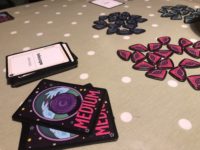
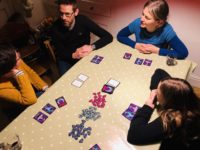



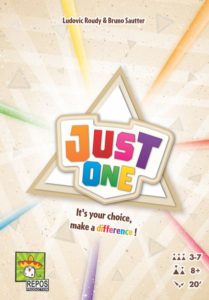
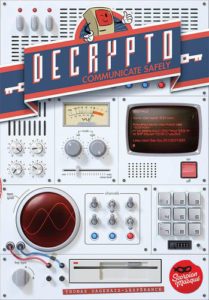
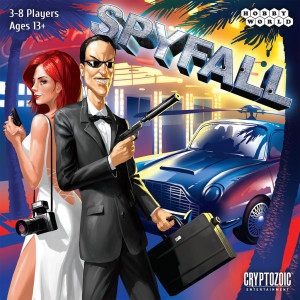
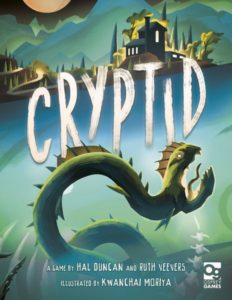
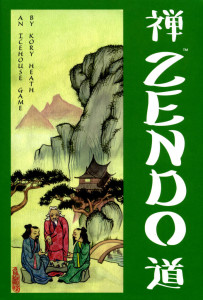
Sam says
A really simple idea that produces moments of joy speckled with many pauses for befuddlement. We really like the concept of Medium and have enjoyed a number of plays: but... the downside is how long you wait between turns, especially with more than four players. With eight, things would feel far too convoluted and considering it has 'Party Game' written on the box, it feels weirdly staccato as an experience: interesting, curious, but somehow destined to make you slightly impatient to get things moving. It has the clever word association of our perennial favourite Just One, but without quite reaching the same levels of joy and comedy. But that said, there is something unique about Medium, and you don't often say that about any game.